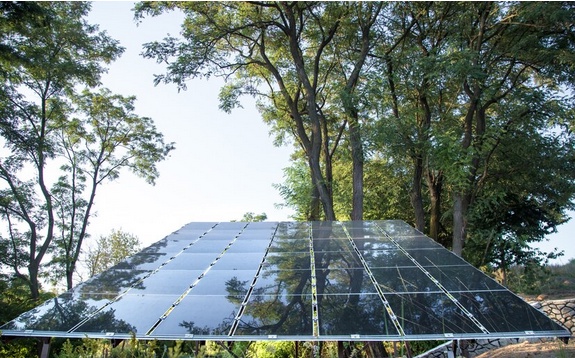In the pursuit of renewable energy solutions, solar panels have emerged as a key player in harnessing the power of the sun. However, as these panels reach the end of their life cycle, the question of sustainable decommissioning and proper waste disposal becomes crucial. This comprehensive guide delves into the complexities of solar panel waste disposal and explores the art of sustainable decommissioning to minimize environmental impact and foster a greener future.
I. The Rise and Afterlife of Solar Panels
As solar energy adoption continues to escalate globally, the number of decommissioned solar panels is also on the rise. The typical lifespan of a solar panel ranges from 25 to 30 years, after which they enter a phase that demands careful consideration — the afterlife. The disposal of aging solar panels requires sustainable solutions to prevent environmental degradation and to maximize the benefits of renewable energy.
II. The Environmental Conundrum
Solar panels are composed of various materials, including glass, aluminum, silicon, and small amounts of potentially hazardous elements like cadmium and lead. Improper disposal can lead to the release of these substances, posing environmental and health risks. As the solar industry grows, addressing the challenge of solar panel waste becomes paramount to ensuring the overall sustainability of solar energy.
III. The Urgency of Responsible Disposal
Responsible disposal of solar panels is paramount to mitigating the potential environmental harm associated with their materials. Traditional disposal methods, such as landfilling, can result in the leaching of hazardous elements into the soil and groundwater. To confront this issue, a proactive approach is needed to develop and implement effective strategies for sustainable solar panel waste management.
IV. Recycling as a Cornerstone Solution
Recycling stands out as a cornerstone solution to the solar panel waste challenge. Proper recycling processes can recover valuable materials, including glass, metals, and silicon, while ensuring the safe handling of hazardous elements. Implementing robust recycling infrastructure is key to maximizing the environmental benefits of solar energy and minimizing its ecological footprint.
V. Technological Innovations in Solar Panel Recycling
The solar industry is witnessing technological innovations aimed at enhancing the efficiency of solar panel recycling. Emerging techniques, such as thermal processing and chemical separation, are being explored to improve the recovery of valuable components and minimize waste. These advancements not only make recycling more effective but also contribute to the sustainability of the entire solar energy lifecycle.
VI. Extended Producer Responsibility (EPR)
Addressing solar panel waste goes beyond individual efforts and involves the collective responsibility of manufacturers. Extended Producer Responsibility (EPR) programs hold manufacturers accountable for managing the entire lifecycle of their products, including proper disposal. By integrating EPR principles into solar panel production, manufacturers are incentivized to design panels with recyclability in mind and establish infrastructure for responsible end-of-life management.
VII. Public Awareness and Engagement
Creating awareness and engaging the public in responsible solar panel disposal practices are essential components of a sustainable future. Educating consumers, businesses, and policymakers about the environmental impact of improper disposal fosters a sense of responsibility. Informed choices during the purchasing and disposal phases contribute to a culture of sustainability, driving positive change in the solar energy landscape.
VIII. Economic Opportunities in Solar Panel Recycling
Beyond the environmental benefits, solar panel recycling presents economic opportunities. The recovery of valuable materials from decommissioned panels can contribute to the circular economy by reducing the demand for virgin resources. Additionally, the growth of the solar panel recycling industry creates jobs and stimulates innovation in waste management technologies.
IX. Addressing the Global Challenge
Solar panel waste is a global challenge that requires international collaboration and standardization. Establishing global guidelines for the disposal and recycling of solar panels ensures a unified and effective approach to managing the afterlife of these renewable energy devices. This collaborative effort involves sharing best practices, technological advancements, and policy frameworks to create a sustainable global solar industry.
Conclusion: Illuminating a Greener Path
In the quest for sustainable energy, addressing the challenge of solar panel waste becomes a critical step toward a greener future. As solar panels gracefully enter their afterlife, responsible disposal practices must take center stage to ensure the continued environmental benefits of solar energy. Through recycling initiatives, technological innovations, extended producer responsibility, and public engagement, we can illuminate a path toward a more sustainable and harmonious coexistence with renewable energy sources. By tackling the complexities of solar panel waste, we pave the way for an afterlife that embraces sustainability, leaving a positive legacy for generations to come.


No comments yet